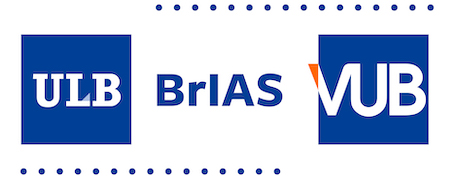Seminar 1: BrIAS Resident Artist Guillaume Slizewicz
Artistic creation in the age of generative machines: an introduction to the creative exploration of AI, automation and its impacts.
Abstract: As algorithms increasingly master the art of creation in text, images and sound, where does that leave human artists and designers? In this talk, I will share my experience as a designer and artist who wrestles with algorithms and machine learning models. Through my previous work, I'll demonstrate how evocative critical investigation, via the creation of artworks, allows us to question our relationship with AI. Building on these investigations, I will present two works in progress that are reflective of the BrIAS program and for which I hope to gather feedback from the present fellows. The first project, Carbon technostructure, visualizes AI's environmental impact through patterns plotted on steamed glass. The second, Synthetic synergies, explores how principles of cultural evolution might be applied in robotic swarms.
Seminar 2: Prof. Miguel Mendez
Integrating Scientific Machine Learning in Fluid Dynamics Engineering
Abstract: The use of machine learning in engineering is continuously growing and evolving. Machine learning offers robust tools to identify patterns and learn functions from large datasets, and the ever-growing availability of experimental and numerical data also makes it viable for disciplines traditionally rooted in physical principles, mechanistic modeling, and differential equations such as fluid dynamics. Blending machine learning and physical modeling is the essence of scientific machine learning, an emerging field with promising avenues in engineering and applied sciences. This talk overviews how physical priors can be embedded into machine learning models and presents some recent applications for turbulence modeling, data assimilation in image velocimetry, inverse modeling, and control of engineering systems.
